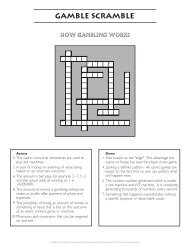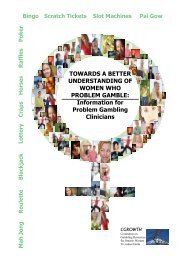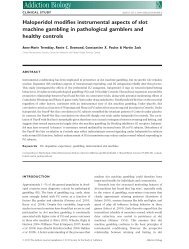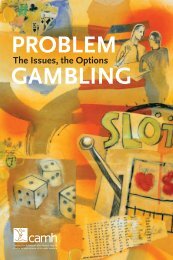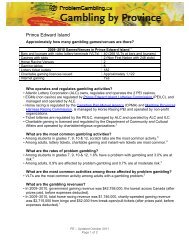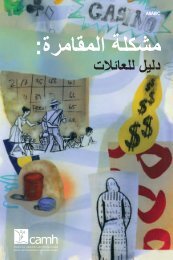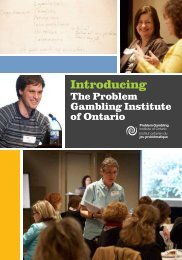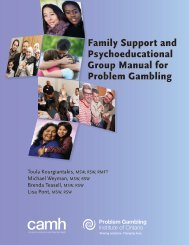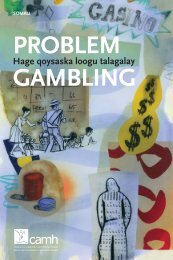Youth Making Choices: Gambling Prevention Program
Youth Making Choices: Gambling Prevention Program
Youth Making Choices: Gambling Prevention Program
Create successful ePaper yourself
Turn your PDF publications into a flip-book with our unique Google optimized e-Paper software.
Unit 6: Moving to ChangeAppendix BTeacher Resource 1 p. 2Preparation StageIn this third stage, the person recognizes the need for change and is preparing to make changes.The person may even begin to take small steps to change her gambling, such as setting timeand money limits. She may talk about making bigger changes soon.At this stage, the following strategies may be helpful:• Support the person’s changes and encourage her to get help from a problem gamblingcounsellor.• Suggest other activities to replace gambling.Action StageIn the action stage the person is ready to commit to change and begins to implement thechanges he has been planning to make. This stage takes the most time and energy, is the mostvisible and gets the most recognition from others.At this stage, the following strategies may be helpful:• Support the person as he replaces gambling with new activities.• If he is not already doing so, encourage the person to go to counselling.• Accept that the person may slip back into gambling.• Give lots of praise and encouragement.Maintenance StageMaintenance is the final stage in behaviour change and is a long and ongoing process. Theperson has made changes and is working on maintaining these changes, as well as learningand practising new skills. This is the time for people to reflect on and consolidate the gains theyhave made. They may begin to see the benefits of their changed behaviour. Individuals continueto substitute healthy alternatives for their problem behaviours and avoid trigger situations andevents. As they continue to increase their level of self-awareness, they may also begin to look atmaking positive changes in other areas of their lives.At this stage, the following strategies may be helpful:• Keep praising the person’s efforts and progress.• Help the person identify and avoid gambling triggers.• Reward efforts at change.• Accept that the person may have relapses.<strong>Youth</strong> <strong>Making</strong> <strong>Choices</strong>: <strong>Gambling</strong> <strong>Prevention</strong> <strong>Program</strong>www.Problem<strong>Gambling</strong>.ca6.14





